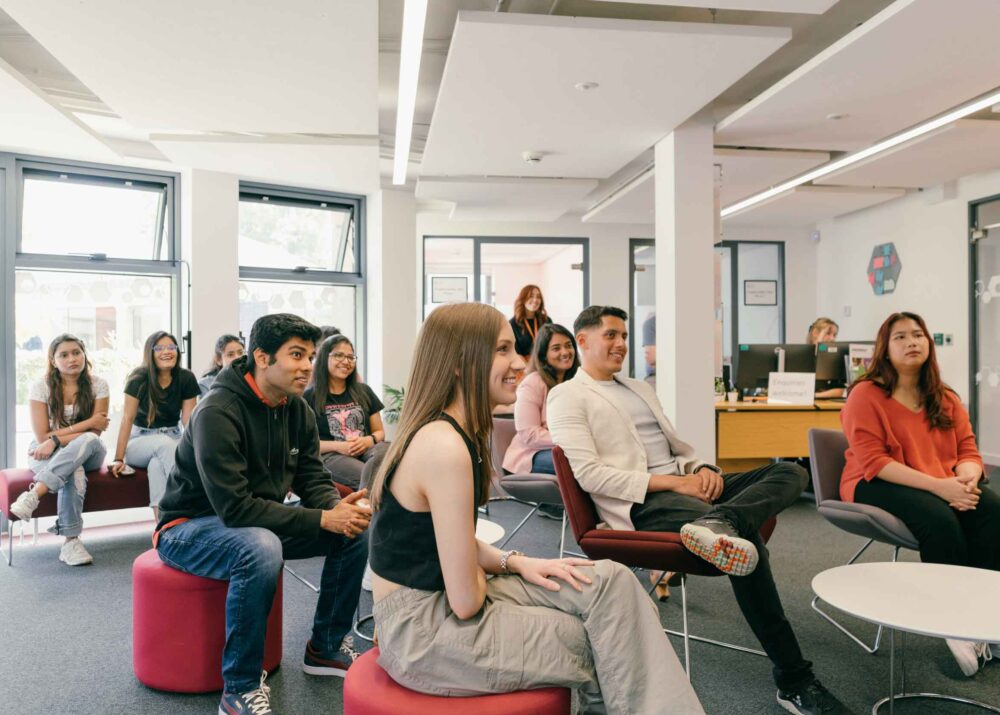When you are ready, there are loads of places in which you can find work experience that will fit you and your lifestyle. This ranges from short unpaid virtual work experience which supports skill development to year long placements. You might be already completing work experience through volunteering, societies and part-time work whilst you are at university. You can also consider completing work experience internationally.
Take time to explore the many different types of work experience you could take, it’s a great opportunity to explore what career path might interest you as well helping to build your confidence and skill set.
Here are some useful resources to help you explore your options and gain valuable experience.
Regular email updates
You will receive emails from the management school’s employability team. These emails are specifically tailored to SUMS. These emails are packed with opportunities for you to get involved with many of the initiatives offered by the school, employers and the wider university community.
Placements
Most undergraduate courses now have the opportunity to add an optional placement year as part of your degree programme. Placements years are open to home and international students alike.
A placement year is:
- A year of work experience with an organisation, which is integrated into your course
- Self-sourced by students with support from your employability team and the Careers and Employability Service
- A recognised part of your programme and will be included in your award title
- Typically undertaken in your penultimate year of study and usually lasting at least approximately 38 weeks
- Available to both home and international students
- Paid, in most instances
A placement year will help you to:
- gain valuable work experience for your CV
- discover what you do and don’t like doing
- develop a range of transferable skills
- get an insight into possible careers
- build a professional network
- apply elements of academic learning in the workplace
While doing a placement, you will:
- Remain a registered student whilst employed by the placement provider
- Continue to have access to student support services
- Pay a substantially reduced tuition fee
As a management school student you are provided a rich source of information through your second year by the employability team, at key stages. These sessions and events are aimed at giving you the information in order to decide if a placement year is right for you.
Management school specific events will be announced throughout the year and you can find out more general information about placements here and supporting resources in obtaining a placement here.
The employability team are here to support you every step of the way and you can message us at mgt.placements@sheffield.ac.uk to ask us any questions, get advice and let us know if you have secured a placement!
A 38+ week placement forms part of your degree programme and your certificate will state your degree title and “with a placement year”. This is recognised by future employers.
Insight weeks
Insight programmes (sometimes called open days, insight weeks or spring weeks) are short introductions to a profession and or an employer. They usually involve visiting an employer’s office and meeting and networking with the people there. For the latest information and vacancies, visit Target Jobs and Rate my Placement.
Internships
Internships offer opportunities to bridge academic theory with practical experience. These short work placements enable management school students to gain hands-on insights into the business world, apply their classroom knowledge in real-world settings and develop essential skills that enhance your employability. Internships not only help build professional networks but also give you a competitive edge in the job market.
Here are some great places to explore internship opportunities:
The University of Sheffield SME Summer Internship Programme
The SME Summer Internship Programme allows eligible students to undertake a paid summer internship with SMEs and charities in the Sheffield City Region. You can find out more about the programme here.
Part-time jobs
Part-time jobs are a great way to earn money alongside your studies, helping you to build your confidence and skill sets within a workplace. You can gather invaluable experience from a variety of roles, including time management, client relations, and effective communication. These abilities stand out to employers and supply you with the building blocks for a successful career. Here are some useful places to support you in obtaining part time employment:
Virtual work experience
Virtual work experience is completed digitally rather than in person and gives you the opportunity to complete an internship from home. Having flexible working options is a priority for many, being able to choose from a wider range of internships, locally and internationally. This is a fantastic way to gain experience and try out different sectors before you apply.
To find out more take a look at Prospects – Virtual Work Experience
To search for vacancies check out:
Volunteering
Volunteering is a great opportunity to give something back to your communities, while also:
- Gaining experience in different areas of work
- Strengthening your CV and job applications
- Developing transferable skills
- Building your network
Volunteering can be undertaken online and in person across a wide range of areas. If you have a charity that means a lot to you or you’re interested in an industry with entry barriers, volunteering can make a real difference.
Employers look for candidates with voluntary work experience, as it sets you apart as being proactive in your approach.
Employers on campus
Employers regularly visit the university delivering talks, Q and A sessions, pop up stands, networking events, careers fairs and competitions. Don’t miss the opportunity to connect with an employer by keeping an eye on all events on Career Connect.
Competitions and challenges
If you’re interested in exciting, innovative short-term projects to gain work experience, a competition might be right for you. With various internal and external business competitions available for students to join, you can put your skills and learning to the test.
The university’s Emerge team offers business startup competitions throughout the year, with the opportunity to win grants to fund your ideas.
There are also online challenges and hackathons, across a range of sectors which we promote to students through our newsletters.

Exploring your Options

